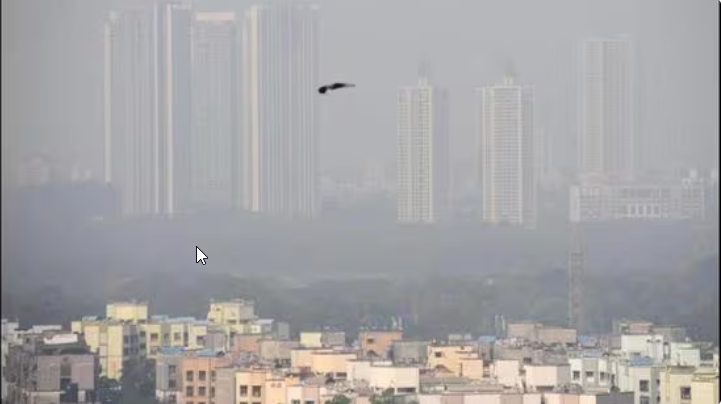In the bustling cities of Mumbai and Delhi, the air quality has become a growing cause for concern. The Air Quality Index (AQI) in these urban hubs has reached alarming levels with Mumbai touching over 119 AQI and Dehli over 194, raising questions about the potential health effects on the residents. Let's get into the repercussions of bad AQI on health and explore how individuals can safeguard themselves in these challenging environments.
The Air Quality Index (AQI) is a measure used to communicate how polluted the air currently is or how polluted it is forecasted to become. It considers various pollutants, including particulate matter (PM2.5 and PM10), nitrogen dioxide (NO2), sulfur dioxide (SO2), carbon monoxide (CO), and ground-level ozone (O3). The AQI is categorized into different levels, ranging from good to hazardous, providing an indication of the potential health effects.
The Health Impacts:
1. Respiratory Issues: High levels of pollutants in the air, particularly PM2.5, can penetrate deep into the lungs, causing or exacerbating respiratory problems. Residents in cities with poor air quality, such as Mumbai and Delhi, may experience increased cases of asthma, bronchitis, and other respiratory issues.
2. Cardiovascular Problems: Poor air quality is not only a concern for the lungs but also for the heart. Long-term exposure to pollutants can contribute to cardiovascular problems, including heart attacks and strokes. The tiny particles in polluted air can enter the bloodstream, affecting the cardiovascular system.
3. Aggravation of Pre-existing Conditions: Individuals with pre-existing health conditions, such as asthma or heart disease, are more vulnerable to the adverse effects of bad air quality. Poor AQI levels can worsen their symptoms and lead to more frequent health complications.
4. Impact on Children and the Elderly: Children and the elderly are particularly susceptible to the effects of poor air quality. Developing respiratory and cardiovascular systems in children can be negatively impacted, while the elderly may experience a decline in overall health due to prolonged exposure.
5. Reduced Immunity: Prolonged exposure to pollutants can weaken the immune system, making individuals more susceptible to infections and illnesses. This is particularly concerning in times when maintaining good health is crucial.
In a city like Mumbai or Delhi, where the AQI is a pressing issue, it's essential to address the concerns surrounding health. Individuals must be aware of the potential risks and take proactive measures to safeguard their well-being. Here are some tips for residents:
1. Air Purifiers for Home: Consider investing in air purifiers for your home. This helps reduce indoor pollution and provides a safe space for you and your family to breathe cleaner air.
2. Health Check-ups: Regular health check-ups become crucial in cities with high AQI levels. Monitor your respiratory and cardiovascular health through routine check-ups and consult healthcare professionals if you notice any symptoms.
3. Protective Masks: Wear protective masks when stepping outside, especially during extremely poor air quality days. N95 masks can help filter out fine particles and protect your respiratory system.
4. Indoor Plants: Indoor plants not only add a touch of greenery but also help in improving indoor air quality. Certain plants are known for their air-purifying properties and can be a natural and aesthetic solution.
5. Stay Informed: Keep yourself informed about the daily AQI levels in your area. Some various apps and websites provide real-time updates on air quality. Stay indoors on days with extremely poor air quality if possible.
As we navigate the challenges of poor air quality in cities like Mumbai and Delhi, prioritizing our health becomes paramount. By understanding the potential health impacts and taking proactive measures, individuals can survive the risks associated with bad AQI levels. Stay informed, invest in solutions like air purifiers, and prioritize your well-being in the face of environmental challenges

 As we navigate the challenges of poor air quality in cities like Mumbai and Delhi, prioritizing our health becomes paramount. By understanding the potential health impacts and taking proactive measures, individuals can survive the risks associated with bad AQI levels.
As we navigate the challenges of poor air quality in cities like Mumbai and Delhi, prioritizing our health becomes paramount. By understanding the potential health impacts and taking proactive measures, individuals can survive the risks associated with bad AQI levels.





.jpeg)














.jpeg)









.jpg)


.jpg)
